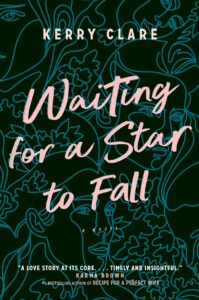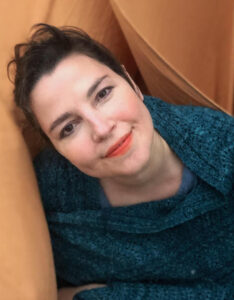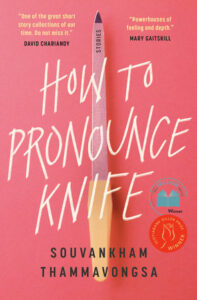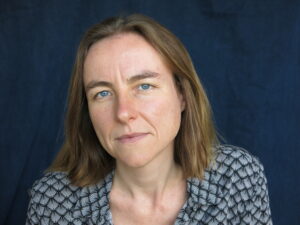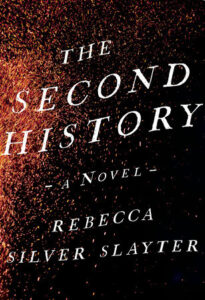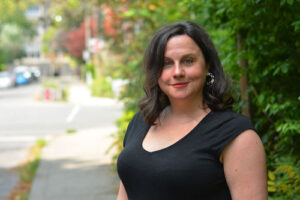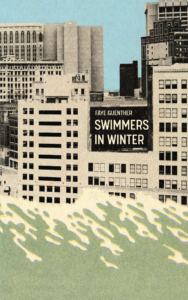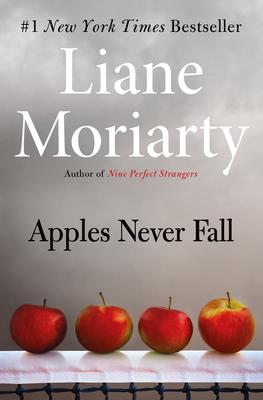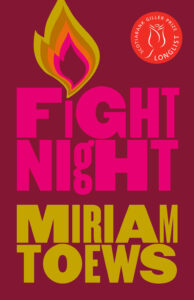October 13, 2021
Class Reunion: ENG 369Y 20 Years Later
During my third year of undergraduate studies, from 2000-2001, I was part of ENG 369Y, a creative writing workshop led by Dr. Lorna Goodison through the Department of English at the University of Toronto.
For so many reasons, many illuminated below, this class would be an unforgettable experience, though it seemed especially remarkable when—two decades later—four of us from the class would all be publishing books within the same year and a bit.
- Souvankham Thammavongsa’s How to Pronounce Knife was published in April 2020, and it was awarded the Scotiabank Giller Prize that year, as well as the 2021 Trillium Book Award, among other accolades.
- Faye Guenther’s Swimmers in Winter came out in August 2020, and it has been a finalist for both the Toronto Book Award and the 2021 ReLit Award.
- My book, Waiting for a Star to Fall, arrived in October 2020, and the Montreal Gazette called it, “Subtly complex […a] romantic drama tailor-made for the #Metoo age.”
- And Rebecca Silver Slayter’s The Second History found its way into the world this summer, with no less than Lisa Moore writing that it’s “one of the most honest renderings of romantic love I’ve ever read. [A] truly mesmeric story, tender, unflinching, quakingly good.”
To me, the serendipitous occasion of our new releases after all this time seemed like an splendid opportunity for us to reconnect and reflect on our time together, as well as so much that we’ve learned about writing in all the years since then, and so the four of us shared our thoughts and ideas via email.
tell us about 20 years in the writing life, about the trajectory of your writing life since our class together in 2000.
Kerry Clare: I don’t think I had a focussed relationship to writing at all in the first ten years after our class together, even as I completed a MA in Creative Writing at the University of Toronto from 2005-2007. There is a line in Annie Dillard’s The Writing Life that I may have misremembered, but it’s about a superficial idea of writer-dom being analogous to one admiring the way one looks in a particular hat, and I always thought she was talking about me, which was mortifying.
When I finished graduate school, I worked for two years reading financial documents all day long, which was not fun, but gave me stability and a salary, though little in the way of creative inspiration. It also gave me parental leave benefits, which I used when I had my first child in 2009, and becoming a parent really seemed to up the stakes for me writing-wise. I became invested in the world in a more meaningful way, and therefore had more to write about. My first big success in writing was an essay about new motherhood I published in 2011, and this led to my first book, the essay anthology The M Word: Conversations About Motherhood, which I edited and was published in 2014.
At this point, I wasn’t sure that writing fiction was going to be my destiny, and was even making peace with that (throughout this entire period, I’ve been blogging, which has been a creative lifeline), but then something clicked shortly after my second child was born and I finally figured out how plot works. My first novel, Mitzi Bytes, was published in 2017, and I’ve been writing them ever since, and though I am constantly terrified that one day I won’t know how to do it anymore, it seems to keep happening.
Souvankham Thammavongsa: I am not a very good example of a writing life because my trajectory isn’t a simple one and it is not for everyone. I don’t think anyone would want it. I worked for fifteen years in the research department of an investment advice publisher, I counted bags of cash five levels below the basement, I prepared taxes. This work helped me write what I want and it didn’t take away my desire to write. I still have that from 2000, this desire to write, but it wasn’t anything someone taught me.
Faye Guenther: I stayed at the University of Toronto to do undergraduate and graduate degrees in English. Then I went to York University and did a PhD in English. While I was a student during those years, the jobs I had to support myself weren’t related to writing, but they showed me things about the world and this is useful to a writer. I’ve found that no matter what you do, the key is to make the time to write. My writing life has also been shaped by who I’ve met along the way, including fellow writers. In 2017, I published a chapbook of poems and short fiction, Flood Lands, with Junction Books. In 2020, I published a collection of short fiction, Swimmers in Winter, with Invisible Publishing.
That is probably most of what I’ve learned in these two decades. How to take in all the advice, all that you’ve learned from other things you wrote, from things you read, from other writers, and then listen very hard for the tiny sound of this book calling for what it needs from you.
Rebecca Silver Slayter
Rebecca Silver Slayter: I decided to stop writing not long after that workshop. I think, to reverse what Souvankham said, I worried my desire to write might be something someone had taught me. That I had lost track of why I wanted to write at all.
So I stopped for a year. Or two. Or three? It felt like forever because I was 20-something and everything was forever.
And meantime I decided to make my life and work writing-adjacent. I interned at Quill & Quire and The Walrus. I worked for a startup children’s publisher. I did odd jobs to complete the financial math, yardwork and errands. Eventually I was hired for my dream job, working as managing editor for Brick literary journal.
Sometime in the midst of that, I met my husband, and told him, proudly, how I had made the tough, mature decision to give up writing, and he listened and nodded and then said, I know you are a writer, with such certainty that I didn’t know how to doubt him and I began writing again. And I found to my great joy what I had been missing in those earlier writing years; a desire to write that easily overtook the desire to be a writer.
I did graduate studies in Montreal, where I wrote the first draft of my first novel, In the Land of Birdfishes. When I graduated, I returned to Nova Scotia, and bought a house for a song in Cape Breton, which I will be renovating for the rest of my earthly days.
This is for me a very good place to write, near the ocean and the highlands, in a community where music and storytelling are woven into everyone’s daily life. Here I published my first book and then wrote and rewrote and rewrote my second book, which was just released this summer: The Second History. It took me eight years from first draft till now, mostly because I tried to write it faster than I’m able to. It turns out I’m a writer who needs to take my time…
That is probably most of what I’ve learned in these two decades. How to take in all the advice, all that you’ve learned from other things you wrote, from things you read, from other writers, and then listen very hard for the tiny sound of this book calling for what it needs from you.
what was the best thing the writer you were in our classroom had going for them? And what writing advice would you give that previous incarnation of you? (Though would you even have taken it?)
ST: My intuition. I listened to everyone, and knew when not to. This taught me how to pick through edits. When we see edits, sometimes it’s about the person and their life experience and it doesn’t mean they are right or know but you have to be generous and allow them to have their thoughts.
I wouldn’t give myself any advice. I think advice can be a disservice to a writer. There’s a lot I didn’t know and I want myself to not know and to live in that not-knowing in order to know it. I want myself to encounter and work through those difficult and lonely moments. I don’t want anyone to hold my hand or do me any favours or make it easier or easy. I like the difficult, and I want to continue with that difficulty.
RSS: One of my clearest memories of that workshop was of Professor Goodison saying, as we discussed one of my poems, “You come from preachers, right?”
I was tongue-tied with confusion. “What?”
“Your people, they’re preachers, right?”
I had absolutely no idea what she meant. “No….” I stammered.
“Then why are you preaching at me?” she asked.
Oof. Caught. I was constantly preaching. Trying to find a much-too-simple way of understanding much-too-large things. I had a weakness for sentences that began like “Love was…”
I think somewhere in this is both my weakness and strength as a writer (probably as a human too). It is writing-in-bad-faith to just polish up pretty turns of phrase that sound truish. To go around making tidy summaries of untidy things. But… I think if I mine deeper I can find underneath that impulse what drives me to writing still, and to reading itself… The sense that there is some luminous other way of noticing the world that will make it brighter, stranger, more visible. That certain words can be incantatory, a pathway to looking again and seeing more.
I have two small children, and have found it astonishing to witness language dawn within a person who formerly had none. How each child altered a bit around the language they used. How they learned what it was then to be nervous, even tired, even thirsty. How what began as the ragged, indeterminate longing of a baby’s howl became so clear, so precise, so unmysterious. And I miss a bit the mystery. The wonder of watching a peer being who doesn’t know what yesterday is. But I think there’s another way that language can give us back what experience has made ordinary. And I think that’s what I was searching for twenty years ago and search for still, but with a few degrees more purpose. And a lot more joy.
So I would maybe advise myself something like this: First, don’t write any more poetry. You are very bad at it. And for a time, don’t write at all. Wait until the desire to write is something you have to resist. Wait until it wells up in you. And then go find the joy of writing words that make you look again, more deeply.
I wouldn’t give myself any advice. I think advice can be a disservice to a writer. There’s a lot I didn’t know and I want myself to not know and to live in that not-knowing in order to know it.
Souvankham Thammavongsa
FG: I remember being openhearted and creative. The writing advice I would give my earlier self is to be bolder. I think when boldness is combined with a practice of being open with yourself and to the world, there is a sharpening of creative focus that can happen and a strengthening of creative perception, no matter what challenges life brings.
KC: The writer I was in our classroom had no idea how much she didn’t know, and far more confidence that she deserved to have, and I’m so happy she did because being 21 is hard enough. I was not a serious person or a serious writer AT ALL. (I remember that Souvankham appeared to be both, and it was such a powerful example for me, though I think I was still too young to fully appreciate it.)
What a tremendous opportunity to develop my skills that class should have been!! But I did not work all that hard, honestly, too busy checking out my look in the hat, remember? I mainly wrote poetry because you could finish a piece in a few minutes. This did not mean my poetry was good, however, although I think sometimes some of it was.
If I could give that writer I was any advice it would be to write something REAL, instead of something you think sounds like something that could be real. (And find writers you love, instead of reading all the writers you’re supposed to love.)
For the record: I would not have listened.
what roles have literary journals and small presses played in your writing career?
RSS: I know literary journals and small presses better as a worker than as a writer. But I am shaped permanently by my years at Brick literary journal, and by the trips I made then, twice a year, to Coach House Press, where the journal was designed at that time.
The Coach House basement was a kind of church I visited like a disciple of those beautiful machines for cutting pages and laying type … and of the people who made them run and knew the stories of an older Toronto and the mesmerizing adventures then had by not-yet-famous writers. In a way that is both corny and essentially true to me, that is what I feel a tiny part of when I write: all the people in all those tiny offices and studios and nooks making small-press books and magazines; their labours of love, their care and bravery, those parallel arts of ink and paper, alongside those of prose and plot.
They taught me what was foundational to writing; the courage and the care of the work. And the kinds of community it can build.
FG: Reading literary magazines gave me an awareness of community. They were the first space where I was published, and I know this is true for many writers. Smaller presses often foster innovative and ground-breaking work. They frequently publish voices and stories that historically have been marginalized. I think smaller presses are important for energizing and sustaining a vibrant creative culture.
My first piece of published fiction was in The New Quarterly in 2007. I will never forget the joy of receiving that acceptance
Kerry Clare
KC: My first piece of published fiction was in The New Quarterly in 2007. I will never forget the joy of receiving that acceptance, especially in the wake of the novel I’d written for my Masters thesis that went nowhere (because it was boring!) because I was really feeling kind of discouraged, and then this message from the universe arrived suggesting maybe I should keep going after all. In the next few years, I would publish pieces in TNQ and other journals, and the high of an submission being accepted has never diminished for me. And then Goose Lane Editions, a remarkable Canadian indie press with an impressive history, published The M Word, and did the book such justice. Without literary journals and small presses, I’d be nowhere.
ST: Literary journals teach you things a writing class or editor or a dear friend and family cannot. They don’t love you and are not beholden in any way. They teach you about rejection—what that feels like, what to do with it. They are often the first place where we get to see ourselves in print. It’s important for a writer to understand the difference between seeing yourself in print and publishing a book. They are not the same.
what are your favourite memories of our class?
ST: I remember the talent and fun. There were so many writers in that class who are more talented, more ambitious, more interesting…but they aren’t here, or with books. They became lawyers and engineers and professors. I always keep that in mind. Having a book doesn’t mean I am good.
KC: I have so many memories! I don’t know if we were particularly interesting as a group, or if it was the work of Professor Lorna Goodison in creating community, or just the particular mix of experience and personalities in our class, but I felt very connected to everyone. I think we were a well written cast of characters.
I remember Souvankham on the very first day, and how she impressed me so much with her sense of herself. I remember we had to write a poem inspired by postcards, and mine had a field of sunflowers and said, “Welcome to Michigan,” and I wrote a poem with the line, “I won’t forget the motor city.” I remember REDACTED who wrote a poem with the line, “Let’s make love in the astral plane,” and I was seriously impressed by how sophisticated he seemed. And someone else who wrote a poem about someone sucking on her toes while listening to Robbie Robertson sing “Somewhere down the crazy river.” Everyone seemed to be having a lot more sex than me. (One could not have been having less sex than me.)
I remember Faye seemed especially interesting, partly because she seemed kind of badass with a shaved head, and we always sat in opposite corners of the room. And how I was in love with the name “Rebecca Silver Slayter,” which belonged to the woman who often sat in the same corner as me and whose work I felt very drawn to.
I think it’s kind of wonderful that in addition to the four of us, plenty of others in that group have gone on to very interesting careers in academic, television writing, and more.
One of my memories of the class was discovering what a literary reading could be—the ways prose and poetry can be shared beyond their existence as words on a page and become something like music in a public space.
Faye Guenther
FG: I’m grateful to have had the opportunity to learn from our teacher Dr. Lorna Goodison. One of my memories of the class was discovering what a literary reading could be—the ways prose and poetry can be shared beyond their existence as words on a page and become something like music in a public space.
RSS: This sounds like very cheap, opportunistic flattery, but honestly, though I remember well many of the talented, interesting writers in the class and their poems and stories, what I remember most clearly is the three of you.
I remember how beautifully Souvankham’s work was always laid out on the page in lovely, tiny type—the form so perfectly echoing the work itself, the grace and economy and polish of her words; how her work seemed always already complete, and I was stumped on how to write any feedback that didn’t just feel like tampering.
How Kerry’s writing was funny and powerful at the same time, and I hadn’t even known that was possible. How she seemed so at home both on the page and in the classroom, warm and open and at ease in a way that awed me. I remember Faye’s compassion for her characters, their rich interiority. How reading her stories felt like someone whispering in your ear, that intimate.
My strongest memory of the class was the first one. When we went around the room and each offered up our names.
Souvankham was near the end, seated at the table perpendicular to the one where Professor Goodison sat.
After she said her name, Professor Goodison asked, “So what do you want to be called?”
I was caught off guard by the question, but Souvankham answered clearly and immediately. Without blinking or skipping a beat, she said: “I want to be called a writer.”
Professor Goodison looked at her and Souvankham looked back. Then she said, “I’m going to call you Sou.”
And I was as astonished as if Souvankham had wafted out of her seat and up into the air between us. I was at that time so uncertain, so full of twenty-one-year-old desires to be interesting, to be brave, to be invisible and/or famous. I would have probably told Professor Goodison she could call me whatever she wanted. Or tried to guess what she might prefer me to be named.
Year by year over these last twenty, I get a little closer to what Souvankham already had then. That certainty. That clarity of purpose and identity as a writer that struck me silent when I was twenty-one.
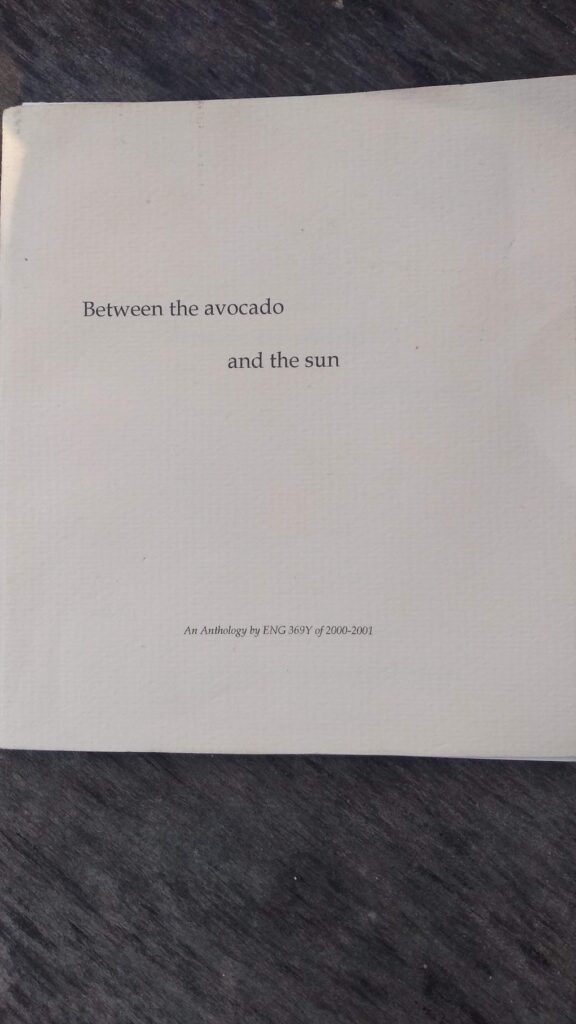
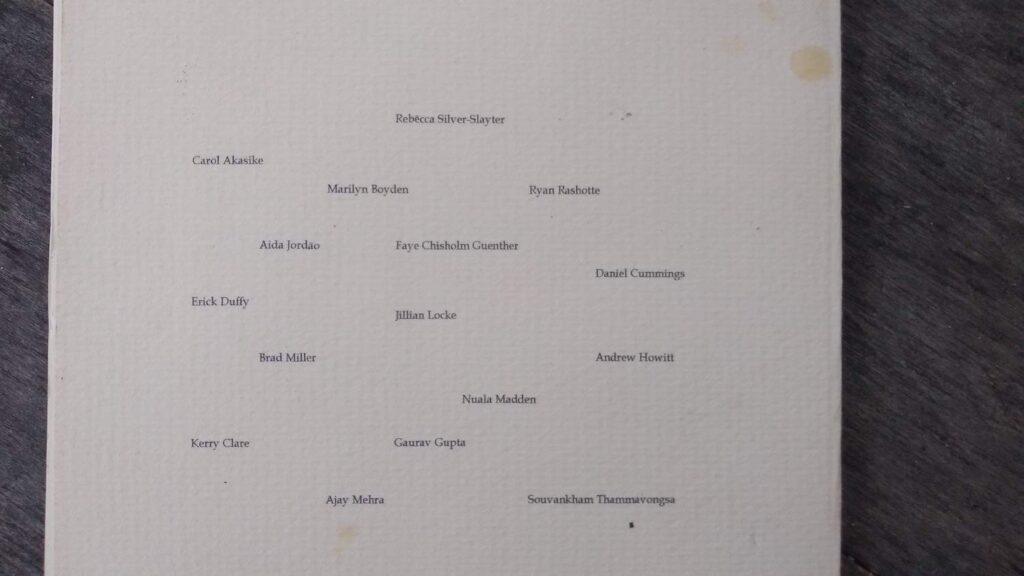
October 13, 2021
Gleanings

- And so, I find myself squarely in the land of paradox. Learning to live and co-exist in the both/and. The contradictions and complexity. That we are both but one in the universe, and the universe itself. Both the inconsequentiality and significance of it all.
- I’m sure some people wonder why the heck I do this blog for little fanfare or acclaim or cash damn dollars. I always come back to this answer, that I love it and so I am constantly paying myself. Don’t get me wrong I also love dollars, but I can’t think about them, I just have to think about what I love.
- So I kept on doing the work that was before me, despite being consumed with self-doubt.
- The older I get, the more intentionally I think about who I am and build my work around that.
- Soup is the great solace of autumn, pots of turkey noodle, roasted squash, comforting borscht, potato and kale, Greek lentil.
- And, it turns out, I don’t have too many clothes. What I had was a wardrobe overstuffed with dreams and sadness. And now I don’t. And my mood, my mental health, everything, is better for it.
- For the frog in the tomato bed, the ladybug in the shower, for the person I saw swimming in the ocean and mistook for a seal until they emerged and I realized they are not a seal but a selkie and who has since become an almost friend. Who would not want a selkie as a friend?
- I would argue that it’s art too, because it shows me the world in a new way.
- When I contemplate why the fresh eggs brought such delight, I realize the mind needs to be serene to see the beauty in the ordinary.
October 13, 2021
It’s art too
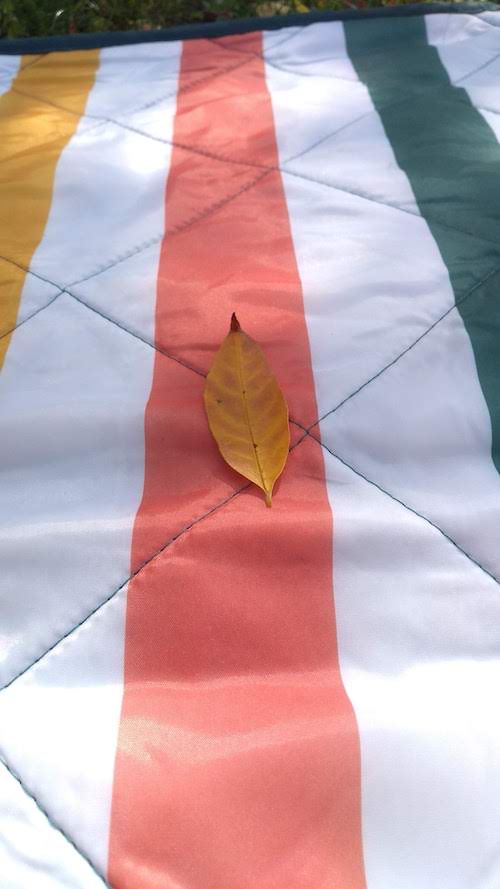
“I would argue that it’s art too, because it shows me the world in a new way.” —Alice Zorn, articulating the very thing I was pondering when I took in the leaf that landed on my picnic blanket yesterday, its seemingly random and yet so very specific placement, what does it mean, the kind of pondering one is prone to when one is reading a new book by Shawna Lemay
October 12, 2021
One More Time
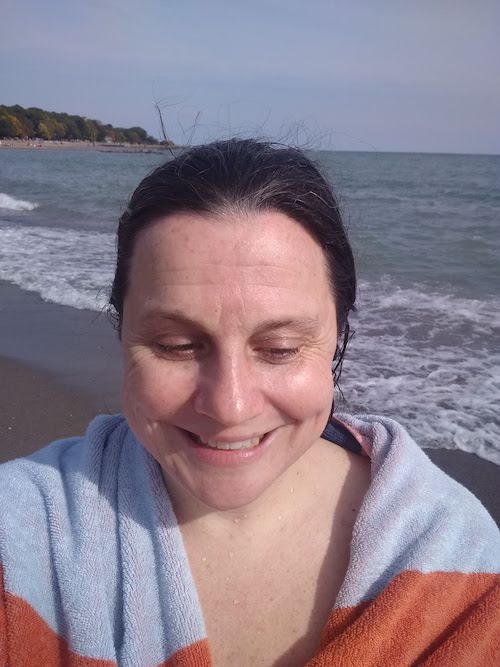
I know that loving swimming is not a substitute for having a personality, but it’s come to constitute a large component of mine, which I sometimes think might be me hopping on a bandwagon, as I’m prone to doing, back around the time that #WildSwimming became a trending hashtag. But then I remember how much swimming has meant to be always, and all the sometimes impractical places I’ve jumped in—the Danube, the Sea of Japan, a duck pond in the middle of our Midlands town where there was nowhere else for a dip (and let me tell you I got a rash from each and every one of these)—and I think that loving swimming has been a part of me for a long time. And, since June 18, after a very long hiatus, I’ve been back to swimming on the regular. As in, I last went swimming this afternoon, and before that was yesterday, and my next swim is scheduled for tomorrow.
How can a single life contain such riches?
But it’s yesterday’s swim I want to talk about now, my last lake swim of the season, which comes two weeks after which I’d previously thought was my last lake swim of the season, though I think I really mean it this time, because today is the twelfth of October after all. I wore my bathing suit on the bus down to the beach, and brought a towel and a pair of underwear to change into, though I wasn’t making any promises. I don’t like swimming in cold water, really, am physically incapable. But the forecast was calling for 20 degrees and anything is possible. I was with my family and our friends, and I told that they were going to watch me dip my toe and then turn around again, because I’m certainly no polar bear. But then it wasn’t cold. A little bracing, yes, but getting right in was only a pleasure.
And then I was floating, the waves large and dramatic, but playful enough, and I couldn’t swim, really, with the water so rough, plus I’d left my goggles at home, and so instead I just let the lake carry me, and everything in the world was reduced to the essential, to blue, to water and sky, and me, and the odd seagull, and I could have floated forever, save for my people on the beach, and when I returned to them, I couldn’t stop smiling, what we call my “resting beach face,” a goofy grin which doesn’t even begin to equal the euphoria of the experience, how it makes me feel so small and alive and connected to a big incredible world, blood coursing through my veins like the waves onto the beach, and just the sheer power of it all, I can feel it, the way the beach and the lake feel like the edge of the world, the beginning of all possibility.
October 6, 2021
Apples Never Fall, by Liane Moriarty
Liane Moriarty is a master of fiction, her genius undermined by her popularity, which makes many readers suspicious. Because how good can a writer possibly be if her bestselling novel gets made into a series by Reese Witherspoon and Nicole Kidman? A question to which I reply: she is so good. Truly Madly Guilty and Big Little Lies are both fantastic novels weaving BIG PLOT with the most sophisticated characterization, her fictional people complex and multi-dimensional, revealing their secrets in rich and surprising fashion which means the plot twists generally deepen the story instead of undermine it. I LOVE HER. The plots themselves undeniably frothy and too much, but in the best way, anchored by the human people at the heart of them. And her latest, Apples Never Fall, does not disappoint.
Which is a relief, because her previous novel, Nine Perfect Strangers, arrived as a bit of a letdown, Moriarty having come up with a fantastic cast of characters, each with luscious backstories, but it all failed to coalesce with an over-the-top preposterous plot and would have made a better short story collection. Because the trouble with a novel about perfect strangers is their lack of connection to each other, which is the kind of spark that lights the fuse.
In Apples Never Fall, however, she’s made her characters a family, which means there are sparks aplenty, decades of grudges and misunderstanding. Joy and Stan Delaney are celebrated tennis coaches whose own children were raised in an ultra-competitive, high intensity atmosphere, each of whom knows they’ve proved disappointments in their own special way. And when Joy suddenly disappears and Stan appears to be the prime suspect, each is afraid to voice their suspicions for fear they might be true.
It gets worse—detectives find a t-shirt soaked with Joy’s blood. Stan is becoming more and more difficult. There there is the matter of the curious house guest, a wayward girl who’d stayed with Joy and Stan after fleeing an abusive relationship a few months before whose story is not quite what it seems. Each of the four Delaney children suspicious of their father, but also each other, and wondering what else they know about their family might turn out to be founded on a lie?
I liked this novel so much for the way it complicates all kinds of ideas about family, marriage, truth and lies, about domestic violence, and anger, and the ways in which we know and fail to know each other. I love how each twist had us understanding these characters on an even deeper level, and how these twists also demonstrate what these characters don’t even know about themselves. And I love how all the threads come together at the end of the book in a way that was surprising, and even refreshing, such a perfect culmination of a most enjoyable read.
October 5, 2021
Gleanings
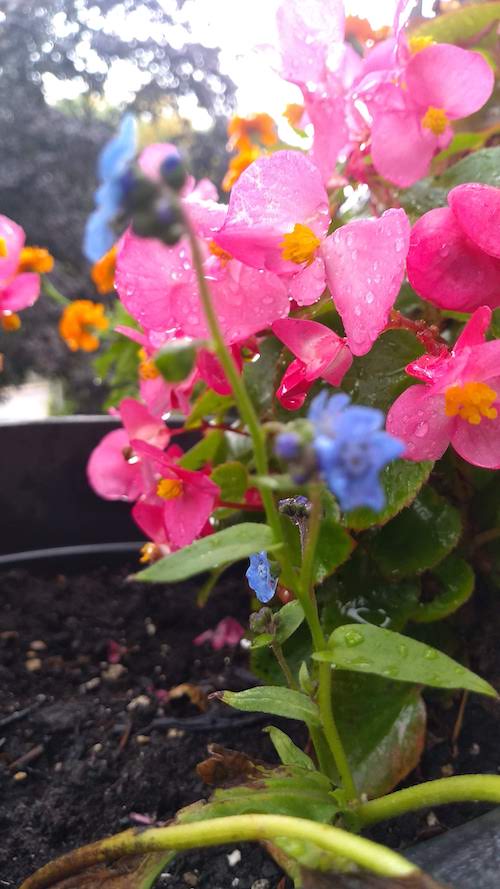
- As I awake in the mornings, the fall sun late to arise, pulling the covers up to my chin attempting to avoid the nippy air around me, my brain and body are beg for just five more minutes. But as my feet hit the ground, and I head out the door, my experience so far, hasn’t been anything miraculous, but more of a quiet, contentment of just being.
- here’s hoping that the tough-talking swaggering braggarty chick that i always wanted to be still lives inside me…i think she does.
- Writers have been describing residential schools for decades. So have the elders. But, we have not seen what we were seeing.
- So I was thinking all this and wasn’t falling asleep. Suddenly I wanted to hear Charley Pride once again.
- I feel like there are bubbles of the past around my house that I walk into by accident, and am transported.
- More music: listening to Prince “Gett Off” and the line about 23 positions in a one-night stand just seems improbable, or maybe even indicative of trouble, like something wasn’t working.
- If I knew the story, I don’t think I’d bother writing it.
- the way orange sneaks up on you
- That morning light, the shadows. Light fades into shadow — it always attracts me.
- I’m only now, in this late stage in life, this third act, really seeing the beauty in art, although it has hovered on the perimeter of my consciousness for years.
- If I were a millennial, I would get a tattoo of a bassoon on a part of my body I wouldn’t mind showing to strangers, such as the back of my hand or my bicep muscle.
- The constancy of the histrionics of these angry people is utterly exhausting to decent folk who are finding their patience and tolerance stretched to the max. This cannot go on.
Do you like reading good things online and want to make sure you don’t miss a “Gleanings” post? Then sign up to receive “Gleanings” delivered to your inbox each week(ish). And if you’ve read something excellent that you think we ought to check out, share the link in a comment below.
October 4, 2021
On Self-Respect
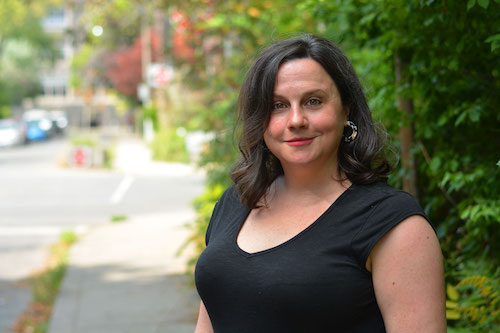
In January, I was attending a virtual book club discussion about my latest novel when one of the attendees mentioned a particular Goodreads Review of my book, and I didn’t know anything about it.
And here’s the thing: I really didn’t. This isn’t just me trying to seem above-it-all, like someone who doesn’t google myself on a regular basis. While my character is overwhelmingly constructed of hundreds of strung-together disciplinary lapses, in this one single area I’ve managed to be resolute. Goodreads is for readers, and it’s not for me, and there generally isn’t anything helpful or constructive that the site’s users can tell me about myself or the work I do.
But it’s taken me three books and several years to reach this point. When my first two books came out, I was so absolutely craving anything in the way of feedback that I read every single Goodreads Reviews, and “liked” them, even the critical ones. Desperately seeking validation, of course, an acknowledgement that my art existed and therefore I did. I was hungry for feedback, the same way any of us is hungry for feedback when we make anything. A response from the question we put into the universe: “Is there anybody out there? Does anybody care that I am here?”
Lately, however, feedback has become less interesting to me. A symptom of being in my 40s perhaps, and caring much less about what others think. But this lack of interest is also because of how feedback functions as a distraction, as noise that keeps me from hearing/knowing what I think about things and forming a deeper understanding.
Lately, feedback has become less interesting to me.
I think about this in particular in connection to politics and social justice, where the shallow memeification of activism serves to simplify complex issues and attempts codify the correct way to think and speak, which I don’t think is a bad thing per se (“cancel culture” or “political correctness gone mad,” yawn), but instead the function of a movement created by young people, and my main problem with it is just that such directives serve to obfuscate my own thoughts and ideas, and I would like to continue the never-ending project unpacking, interrogating, of getting to the bottom of it all.
A while ago, the author Deryn Collier (whose thoughts on creating and creativity I appreciate so much) shared an Instagram post with the line, “We do not need artists to have thick skins.” About how being sensitive to the world around us was essential to the labour of creating art, and thick skins only serve to protect us from feeling.
But I, of course, had been thinking a lot about this idea of feedback and noise, and so spun the idea off in that general direction. And determined that no, it is true, that a rhinoceros hide is not what anybody needs, save for the rhinoceroses, and instead what we people need most to respond to the world and its overwhelming messaging—telling us who we are and what we ought to think about the things we make, and about the kind of world we want to live in—is something solid at our core. Not solid so as to be unmoveable, unchangeable, because we’re human after all, but still, something intrinsic that can remind if us who we are and what we know.
In a recent blog post, my friend Amy Rhoda Brown declared this “something intrinsic” as trust.
“I’m not sure if fear needs an antidote, actually,” writes Brown in this post about fear and survival, about venturing into a dark place and ultimately finding light:
“An antidote neutralizes, and maybe fear shouldn’t be neutralized. Maybe it should be seen and respected and understood.
What fear needs is a companion, something that can make scary situations easier to face, failures easier to recover from. Something that can turn risk into opportunity.
I think the best companion to fear is trust.
Trust in yourself that you can recover when — not if — things go wrong. And trust in the people who love you, that when you fall, someone, or many someones, will be there to help you get back up again.”
Which was precisely what Joan Didion was writing about in my favourite of her essays, “On Self Respect”: ““To have that sense of one’s intrinsic worth which constitutes self-respect is to potentially to have everything: the ability to discriminate, to love and to remain indifferent.”
What we need most to respond to the world and its overwhelming messaging—telling us who we are and what we ought to think about the things we make, and about the kind of world we want to live in—is something solid at our core.
Didion goes on, “To assign unanswered letters their proper weight, to free us from the expectations of others, to give us back to ourselves—there lies the great, the singular power of self-respect.”
(And my favourite line, “[C]haracter—the willingness to accept responsibility for one’s life—is the source from which self-respect springs.”)
So how do you cultivate it? Didion, who prides herself on specificity, is uncharacteristically vague in this one aspect, although she gives a hint in the line, “That kind of self-respect is a discipline, a habit of mind that can never be faked but can be developed, trained, coaxed forth.”
And so for answers, we to turn to Phosphorescence, by Julia Baird, one of my favourite reads of this year, a book I first borrowed from the library, and then I bought a copy for myself, and even purchased another for a friend currently undergoing cancer treatments. Subtitled, “A Memoir of Finding Joy When the World Goes Dark,” Phosphorescence is literally about finding that light from within, about locating that intrinsic core, that trust, one’s very own compass points. It’s a book about the uses of awe, connection, of purpose, of learning to listen and to see. And it’s wonderful.
“After all this exploring, we should be gazing steadily outward, beginning to find others again, and the brilliance of the world outside our doors,” Baird writes.
And that’s the secret, I think, to uncovering that trust, that necessary self-respect to be a human with a solid core. Not navel-gazing, not at all. The secret is awe, and wonder. It’s remembering to look up, and to ponder the nature of the universe, its infinity, and to be continually bowled over by what a miracle it is that any of us get to be a part of it at all.
“After all this exploring, we should be gazing steadily outward, beginning to find others again, and the brilliance of the world outside our doors
Julia Baird
September 30, 2021
Fight Night, by Miriam Toews
Nobody in any of Miriam Toews’ novels is ever any good at being anybody but the people who they are, which are people who are so achingly real, human, complicated, messy, furious, alive. It’s also impressive that while Toews returns to the same themes over and over in her work, in particular the experiences of contemporary secular Mennonites, she never writes the same book twice, pushing the limits of point of view and just what a novel can possibly contain, and her reader gets the sense that she’s actively resisting anything close to boredom. Which means her books are never boring, even if—as is the case in her latest, Fight Night—not much actively happens in the way of plot at all.
But no matter. Who needs plot when you’ve got voice? And to that end: meet Swiv, whose point of view propels Fight Night from start to finish, a Toewsian voice if there is such a thing. A young, precocious misfit who is wise beyond her years, Swiv had been kicked out of school for fighting and spends her days with her eccentric grandmother watching Call the Midwife while her very pregnant mother, an actress, rehearses for a play. Swiv’s aunt and grandfather have both died by suicide, and she’s concerned her mother is headed for a similar fate, all the while she’s terrified her grandmother might pass away at any being, kept alive as she is on a cocktail of various medications.
The novel’s structure is a letter Swiv is writing to her father as she anticipates the birth of her new sibling and also her imminent abandonment by everyone she loves. She doesn’t actually know where her father lives. Swiv is terrified, and taking responsbility for all the adults in her life who are being overwhelmed by their own burdens.
And have I mentioned that the novel is terrifically funny? If you’re familiar with Toews, you’ll already know that. The gap between the world as it is and how Swiv’s sees it is very funny, as is her fierce dignity, and her prudishness in contrast to her ribald grandmother who gets quite a kick of mortifying her. But of course, (and if you’ve read Toews, you’ll know this too) it’s also heartbreaking, especially that this young person is carrying the entire world on her shoulders.
So there is laughter, yes, and there is crying. There is life, and there is death. There’s also a trip to California, a perilous plane journey home, Jay Gatbsy perpetually knocking at the door, busses and boats, and books sawed in half so they’re easier to hold. There is love and there is rage and there is ferocity and gentleness, and so many ways to keep fighting, so many reasons to fight.
September 29, 2021
Gleanings
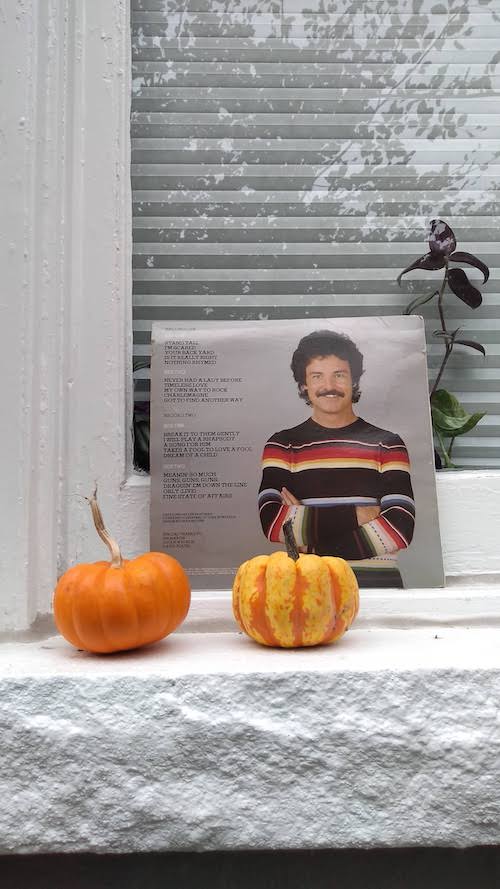
- The process shows me that diversions and detours are as important in writing as they are in travel. And as in climbing, there are no shortcuts.
- This year I’ve been feeding my creative side, hoping that it will grow stronger.
- With uncertainty, (and a dash of contempt), I decide instead to just be in the moment, watching and noticing the whales, no recording or pictures, and risk the fleetingness of the moment of simply seeing the white bodies of the magnificent belugas swim by.
- In the end I feel I am hardwired to be this way — it’s how I respond to and live in the world. But still the question what is it trying to tell me? is a good one.
- If you thought SSJ was largely made of Love-To-Do-Lists, you were right.
- If I ever need a reminder of what it truly means to ‘live in the moment’ I only have to watch Doug. I am so thankful that he appears to be content, and that so many of his moments appear to be filled with joy.
- Really. Keep the faith. Anything is possible.
- I wonder, was I too close to see her as a woman? Or did I have so few stories from her life outside of these roles that I couldn’t see her as anything else?
- You know there are times I have thought it would be okay to send out some good vibes, a kind of secular prayer of sorts, to the unvaxed, at least to those sitting on the fence, a little unsure. And maybe the above would suffice.
Do you like reading good things online and want to make sure you don’t miss a “Gleanings” post? Then sign up to receive “Gleanings” delivered to your inbox each week(ish). And if you’ve read something excellent that you think we ought to check out, share the link in a comment below.
September 28, 2021
Getaway
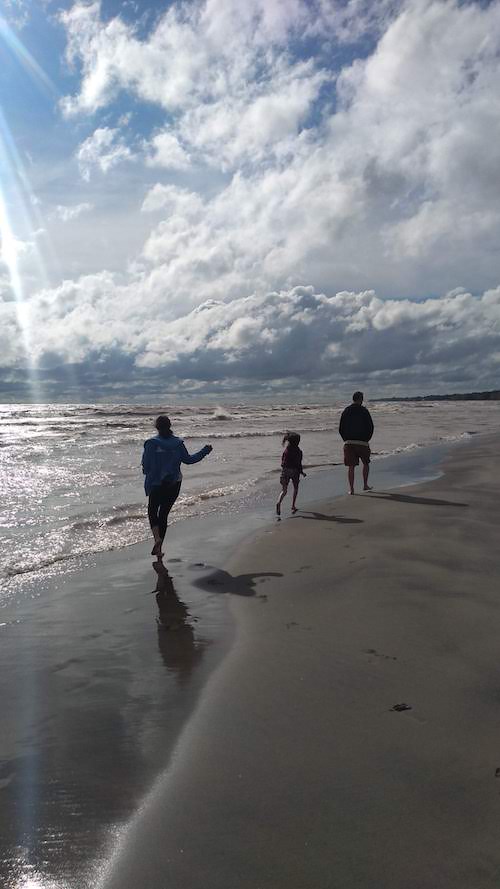
“I can’t believe we’re going camping tomorrow,” Iris kept repeating on Thursday as we moved through the motions of a perfectly ordinary weekday. (A perfectly ordinary weekday. Can you imagine? Getting breakfast on, walking kids to school, greeting friends at the school gate? And can you imagine what a pleasure are these motions, especially after so many months without them?”) And I felt exactly the same as she did, back on the roller coaster of work and school, deadlines and dates on the calendar, even if that roller coaster moves more cautiously than it once did, easier on the twists and turns. Because once we’re stuck in our routine (and I love our routine. For months and months, the familiarity and support of our routine was everything I longed for, but still) it seems impossible to imagine any other way of doing things. But in July, with still no idea what the near future would hold, I’d booked a camping trip, just to keep summer going for a little bit longer, and because I had this suspicion we might find ourselves in need of a getaway.
And so we went, impossibly. On Thursday both children were learning at their desks, and on Friday they were helping us pitch a tent on the shores of Lake Erie where we spent two days offline and in nature, and it was wonderful, and significant for being our first off-season camping venture. Even more significantly: our last outdoor swims of 2021 as well in the churning waters of this great lake (our third Grade Lake in as many months!).
A reminder that sometimes what makes the impossible possible is one simple thing: you just do it.

